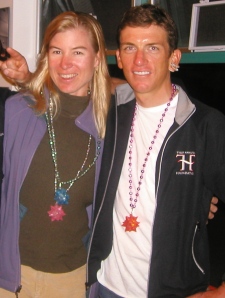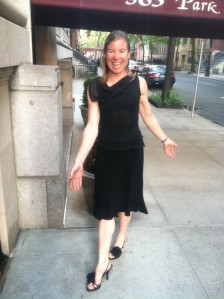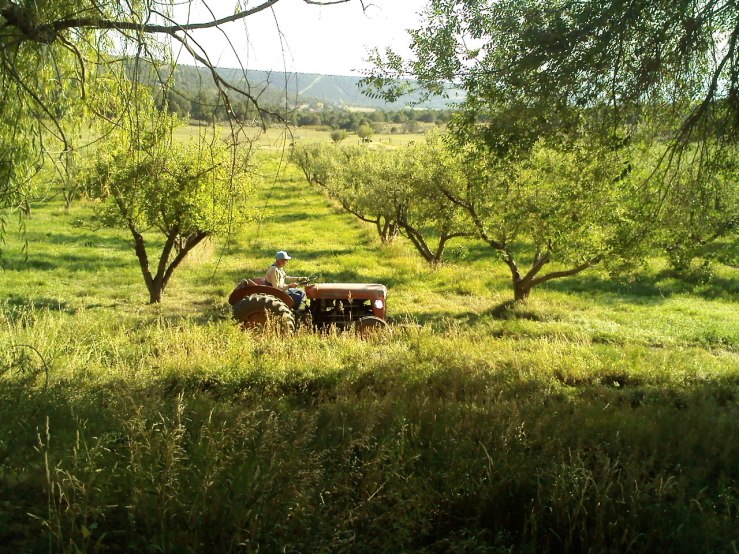 As I’ve followed the NCAA basketball tournament (join me and some folks from Radiolab tonight, as we live tweet the final game), I’ve been thinking about the value of collegiate sports. My first experience with sports in college came as an NCAA division I cross-country runner. I lettered in cross-country at the University of Colorado my freshman year, but a freak knee injury cut short my collegiate running career. Though I had no experience in the sport, I started training with my school’s Nordic ski team, and I also bought a bike and joined the cycling team.
As I’ve followed the NCAA basketball tournament (join me and some folks from Radiolab tonight, as we live tweet the final game), I’ve been thinking about the value of collegiate sports. My first experience with sports in college came as an NCAA division I cross-country runner. I lettered in cross-country at the University of Colorado my freshman year, but a freak knee injury cut short my collegiate running career. Though I had no experience in the sport, I started training with my school’s Nordic ski team, and I also bought a bike and joined the cycling team.
Cross-country and skiing were both division I, NCAA sports, but cycling was governed by its own body, outside of the NCAA system, and was overseen by club sports, rather than CU’s varsity athletic program. The difference was immediately noticeable. As a varsity NCAA athlete, I received special treatment — advance, preferential registration for classes, private tutoring if I needed it, and excused time from class to attend practice and meets, not to mention free tickets to all sporting events. This special treatment fostered a sense of privilege. We were part of the student body, but we were treated as if we were somehow above it.
My teammates and I were good students, and we were there to get a degree, we didn’t expect to make a profession out of sport. Nevertheless, as varsity athletes, we understood that performance was expected of us. Our sport was no hobby — we were there to win.
Things were different on the cycling team. My teammates and I were no less devoted to our sport, and our coaches were every bit as enthusiastic as those in the division I sports. But we didn’t have the same sense of entitlement or expectation. We were pursuing the thing we loved and didn’t assume that our classmates would share our reverence for our sport. The school wasn’t pressuring us for results; it was us who created the expectations.
We were national champions my senior year, and we didn’t need the school’s adoration to enjoy the thrill of victory. We were pursuing the sport for its own sake and had won because we’d worked hard and our luck had aligned, as it must to win a championship. Our victory wasn’t the result of financial incentives that allowed us to recruit a winning team from afar. Instead, we’d pulled together a championship team through happenstance and training. Sure, we had plenty of talent (one of my teammates would go on to become a Tour de France stage winner and infamous doper), but the riders on our team had come to CU for school, not to prep for pro sports. The opportunity to race bikes in Boulder was an attractive reason to attend this particular school, not the sole reason for being there.
Read the rest at Last Word On Nothing.
 A few years ago, I decided to take up hunting. This was kind of a big deal, because I’d spent the first decade-plus of my adult life as vegetarian. I became a big game hunter for the same reason I raise chickens — to know where my food comes from and ensure that it’s raised and harvested humanely. I figure if I’m not willing to kill it myself, I have no business eating it.
A few years ago, I decided to take up hunting. This was kind of a big deal, because I’d spent the first decade-plus of my adult life as vegetarian. I became a big game hunter for the same reason I raise chickens — to know where my food comes from and ensure that it’s raised and harvested humanely. I figure if I’m not willing to kill it myself, I have no business eating it.





